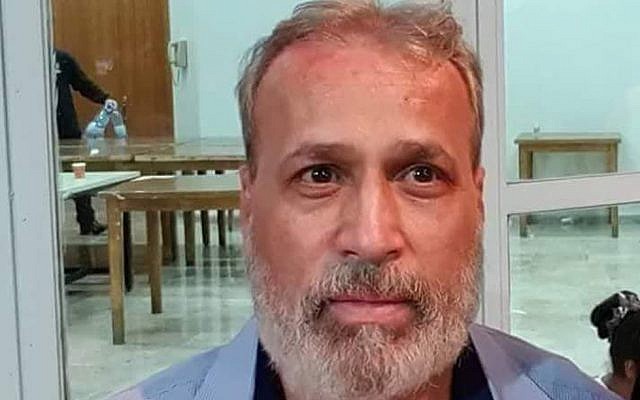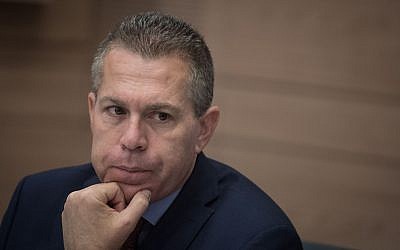New York Times quotes senior figure from intelligence agency in the region; Israeli cabinet minister refuses to comment on report but says it’s a ‘good thing’ Aziz Azbar is dead

A senior official from a Middle East intelligence agency has pointed the finger at Israel’s Mossad for the killing of a top Syrian chemical weapons and rocket scientist over the weekend, The New York Times reported Tuesday, reinforcing accusations from Syria.
Aziz Azbar was killed when his car exploded in the northern city of Masyaf late Saturday night. The unnamed official, speaking on condition of anonymity, told the paper that Israel was behind the attack and said his own intelligence agency had been informed of the Israeli operation.
A senior Israeli government official declined to comment on the report Tuesday, but noted it was “a good thing” that Azbar was dead.
A pro-government Syrian paper on Sunday had accused the Mossad of being behind the hit. Azbar’s driver was also killed in the blast.
According to the report, Israel believed that Azbar was leading a classified weapons development program called Sector 4 at the Syrian Scientific Studies and Research Center, and was busy re-building an underground weapons factory to replace the one said destroyed by Israel last year.
Azbar was working alongside Maj. Gen. Qassim Suleimani, the commander of the Iranian Revolutionary Guards’ elite al-Quds Force and enjoyed high-level access to both the Syrian and Iranian governments, the New York Times said.
Azbar and his team were working to begin mass-producing precision-guided missiles by retrofitting SM600 Tishreen rockets. They were also working on a solid-fuel plant for missiles and rockets, a safer alternative to liquid fuel, the report said. The Tishreen is a Syrian version of the Iranian Fateh-110, a missile with a range of 200 kilomenters (125 miles.)

Israel does not usually comment on reports of its alleged military operations in Syria but has repeatedly warned it would work to keep advanced weapons out of Hezbollah terrorists’ hands and has vowed to stop Iran establishing a military presence in the country.
On Tuesday, Gilad Erdan who heads the Public Security and Strategic Affairs ministries declined to comment on Israel’s involvement in Azbar’s killing, but said it was “a good thing” that he was dead.
“We obviously do not comment on these kinds of reports — neither confirming nor denying them — but we can talk about the man himself, who was responsible for putting high quality weapons in the hands of some bad people, and so we can say that the fact he is no longer with us is a good thing,” he told Israel Radio when asked about the New York Times report.
Defense Minister Avigdor Liberman on Sunday sought to downplay the possibility of Israeli involvement.

“Every day in the Middle East there are hundreds of explosions and settling of scores. Every time they try to place the blame on us. So we won’t take this too seriously,” he told Hadashot News.
An insurgent group calling itself the Abu Amara Brigades claimed responsibility for the operation. The group has previously claimed attacks targeting officials and militia commanders inside government territory.
In April 2017, the Trump administration placed sanctions on hundreds of CERS employees following a chemical attack on the Syrian rebel-held city of Khan Sheikhoun that killed dozens of civilians, including children.
Another CERS facility near Damascus was bombed by US, British and French forces in April after another chemical attack.
The Syrian regime has been accused of dozens of gas attacks that have killed hundreds of civilians during the war, even after it said it was giving up its stockpile.
As reported by The Times of Israel

